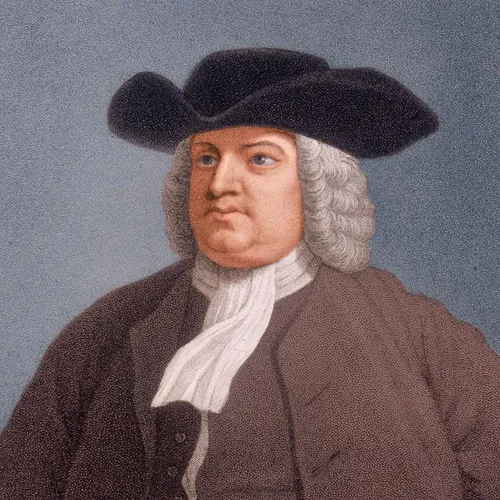William Penn was the founder of Philadelphia and the colony of Pennsylvania. He belonged to the Protestant non-conformist group known as the Quakers. He was a major influence on the Quaker movement. His beliefs were definitely in line with the idea of middle class morality. This inevitably led to many Quakers becoming successful and prosperous.
What are the characteristics of middle class morality? This philosophy is usually represented by hard-work, self-discipline, thrift, modesty, and honesty. It is the idea that one should take the middle-road in life. Don’t do something in excess, but do not refrain from doing it at all. This philosophy is very prominent in Penn’s works especially in his collection of pithy statements in his work “The Fruits of Solitude.”
On Work and Discipline
Penn was definitely an advocate of hard-work and self-discipline this is evident in “The Fruits of Solitude.” Penn writes “Love Labor: For if thou dost not want it for Food, thou mayest for Physick. It is wholesom for thy Body, and good for thy Mind. It prevents the Fruits of Idleness, which many times comes of nothing to do, and leads too many to do what is worse than nothing.”1 He clearly was a fan of hard-work. Penn also has an affinity for self discipline, he writes “If thou wouldst he happy and easie in thy Family, above all things observe Discipline.”2
The Middle Road
Penn advocates for taking the middle road in almost every issue. He includes many aspects of life like wealth, risk-taking, charity, popularity, eating, drinking, and even fashion. Penn was an advocate of the simple life. He believed that it wasn’t necessary to have all the best items. However, he didn’t believe people should live in poverty. Once again, he was an advocate of the middle road.
On charity Penn writes “Lend not beyond thy Ability, nor refuse to lend out of thy Ability; especially when it will help others more than it can hurt thee.”3 He takes the middle road.
On wealth he writes “Frugality is good if Liberality be join’d with it. The first is leaving off superfluous expences; the last bestowing them to the Benefit of others that need. The first without the last begins Covetousness; the last without the first begins Prodigality: Both together make an excellent Temper. Happy the Place where ever that is found.”4 Again Penn takes the middle road; he warns against being a miser and against being prodigal.
On eating Penn writes “To this a spare Diet contributes much. Eat therefore to live, and do not live to eat. That’s like a Man, but this below a Beast.”5 Here we see the middle road again; Penn is against gluttony, but he doesn’t think we should starve ourselves. Penn had similar opinions on drinking alcohol. He writes “Strong Liquors are good at some Times, and in small Proportions; being better for Physick than Food, for Cordials than common Use… All Excess is ill: But Drunkenness is of the worst Sort. It spoils Health, dismounts the Mind, and unmans Men: It reveals Secrets, is Quarrelsome, Lascivious, Impudent, Dangerous and Mad. In fine, he that is drunk is not a Man: Because he is so long void of Reason, that distinguishes a Man from a Beast.”6
Conclusion
Penn was definitely an advocate of middle class morality. His work “The Fruits of Solitude” explicitly shows this. He was a strong believer in hard-work and self-discipline. He also was in favor of taking the middle road in life. These middle-class values allowed the Quakers to prosper. If one wants to get a framework of middle-class morality, then Penn’s works are a great place to look.
- Penn, William. Some Fruits of Solitude in Reflections and Maxims. Ron Paul Curriculum. p. 8. ↩︎
- Penn, William. Some Fruits of Solitude in Reflections and Maxims. Ron Paul Curriculum. p. 8. ↩︎
- Penn, William. Some Fruits of Solitude in Reflections and Maxims. Ron Paul Curriculum. p. 7. ↩︎
- Penn, William. Some Fruits of Solitude in Reflections and Maxims. Ron Paul Curriculum. p. 7. ↩︎
- Penn, William. Some Fruits of Solitude in Reflections and Maxims. Ron Paul Curriculum. p. 8. ↩︎
- Penn, William. Some Fruits of Solitude in Reflections and Maxims. Ron Paul Curriculum. p. 9. ↩︎

Seems like a smart approach to life.